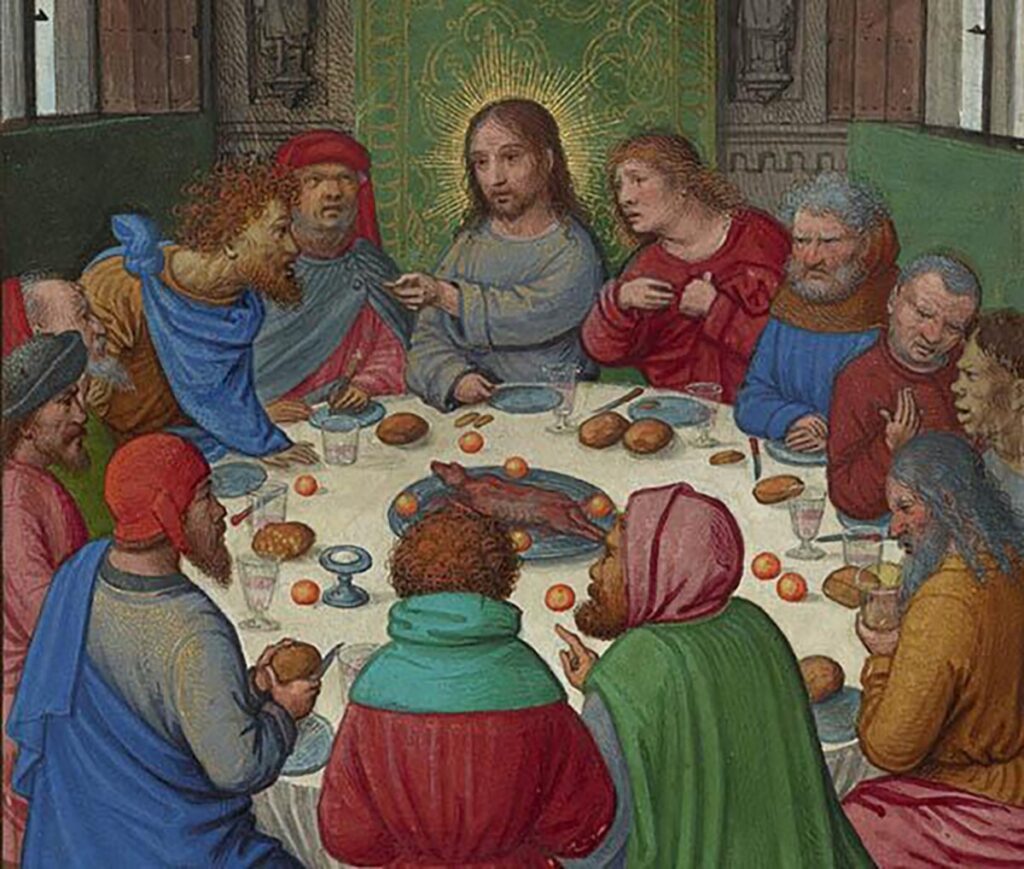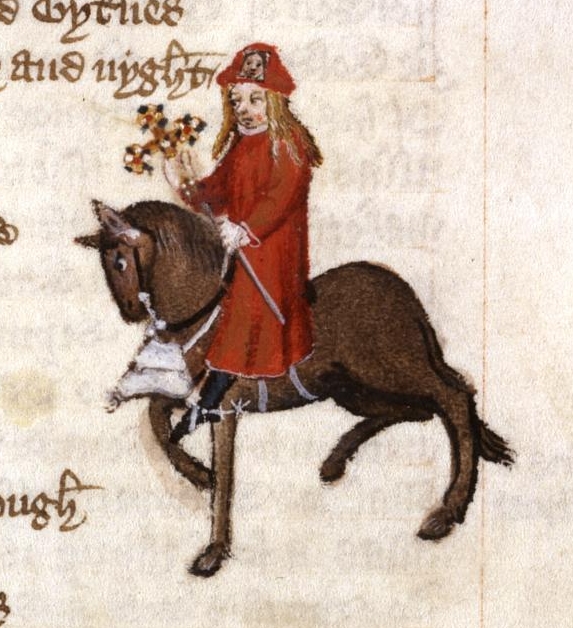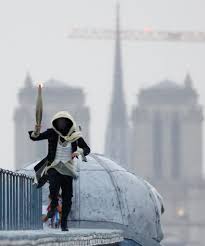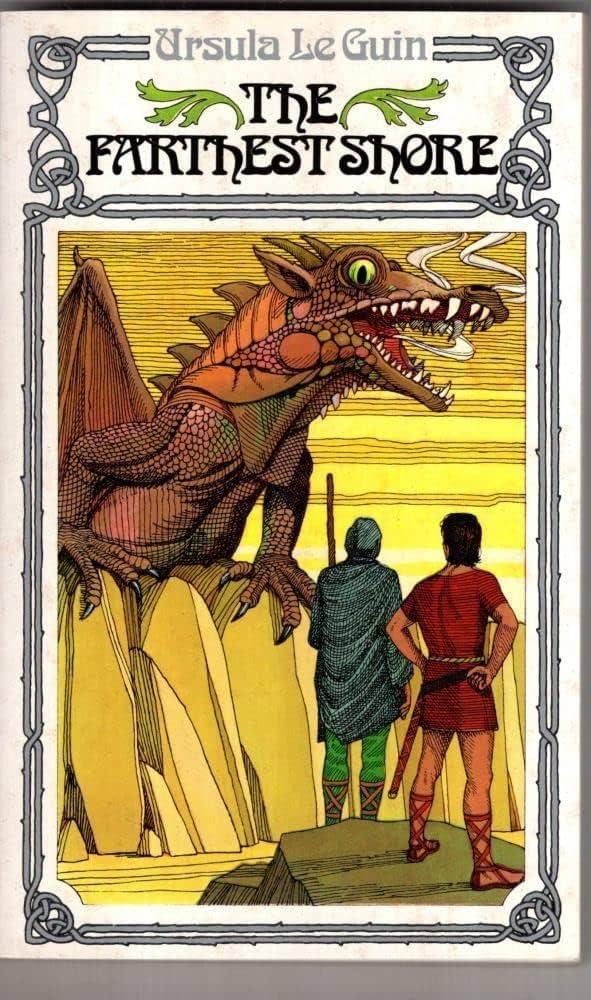Note: If you wish to receive, via e-mail, (1) my weekly newsletter or (2) daily copies of these posts, write to me at rrbates1951@gmail.com. Comments may also be sent to this address. I promise not to share your e-mail with anyone. To unsubscribe, write here as well.
Sunday
As today’s Gospel reading is the passage from John where Jesus declares that he is “the bread of life,” I am reposting a presentation on holy bread that I delivered last summer. The occasion was the adult lectures that accompany our Vacation Bible School. The theme was “Manna in the Wilderness.
Talk for Parish of St. Mark & St. Paul, Sewanee, June 6, 2023
If we see bread as a basic necessity, the archetypal food and symbol of our grounding in the world of matter, then bread provides a powerful means of exploring the point where the material and the spiritual meet.
This, it so happens, is the way that Jesus uses bread. When he says, “I am the bread of life, they who come to me shall not perish,” he is saying that the spiritual life he represents is as foundational to our existence as bread is. In fact, Jesus is a poet at such moments, just as he is a skilled author of fiction in the way that he shapes his parables.
For instance, when he breaks bread with his disciples, he is using the bread metaphor in multiple ways. In the breaking and share of the bread, he is giving the disciples a powerful symbol of community in which people care for each other. When Jesus says, “This is my body which is given for you: this do in remembrance of me”—and when we say at the eucharist, “The body of Christ, the bread of heaven—the disciples take in both his spiritual and his physical presence. At such moments, we are at the threshold of the spiritual world but, as physical beings, require something that we can taste and see.
All of which is to say that the bread that shows up in poetry is always much more than bread.
A quick survey of the times that Jesus mentions bread might have us calling him a “bread poet” given the importance he assigns to it Here are a few key instances:
–Jesus said to them, “I am the bread of life; he who comes to Me will not hunger, and he who believes in Me will never thirst.—John 6:35
–“I am the living bread that came down out of heaven; if anyone eats of this bread, he will live forever; and the bread also which I will give for the life of the world is My flesh.” – John 6:51
–But He answered [to Satan] and said, “It is written, ‘Man shall not live on bread alone, but on every word that proceeds out of the mouth of God.’”—Matthew 4:4
–While they were eating, Jesus took some bread, and after a blessing, He broke it and gave it to the disciples, and said, “Take, eat; this is My body.” – Matthew 26:26
–And when He had taken some bread and given thanks, He broke it and gave it to them, saying, “This is My body which is given for you; do this in remembrance of Me.”—Luke 22:19
–“I am the bread of life.”—John 6:48
–Then He took the five loaves and the two fish, and looking up to heaven, He blessed them, and broke them, and kept giving them to the disciples to set before the people.—Luke 9:16
–“Our fathers ate the manna in the wilderness; as it is written, ‘He gave them bread out of heaven to eat.’”—John 6:31
–“Give us this day our daily bread.”—Matthew 6:11
Turning to bread poems, I start with one of the most familiar poetic mentions of bread, attributed to the 12th century poet, mathematician, astronomer and philosopher Omar Khayaam, who was maybe a Sufi mystic, maybe a Zoroastrian, maybe an atheist. In any event, one can say that bread figures into his vision of heaven on earth:
From The Rubaiyat of Omar Khayyam
XI
A Book of Verses underneath the Bough,
A jug of Wine, a Loaf of Bread—and Thou
Beside me singing in the Wilderness—
O, Wilderness were Paradise enow!”
Poetry, bread and wine, and a singing companion = the kingdom of God brought to earth.
In Christian poetry, there are a number of poems that take up Jesus’s bread metaphors and explore them further. Friend and colleague John Gatta alerted me to one by the American Puritan poet Edward Taylor (1642-1729), who meditates on Jesus’s declaration (John 6:51) that “I am the living bread.”
Edwards is writing in the tradition of the metaphysical poets, who pushed their metaphors to the limit. John Donne is the most famous example although it’s worth noting that not everyone was a fan. Samuel Johnson once wrote that, in metaphysical poetry, “The most heterogeneous ideas are yoked by violence together.”
Anyway, in the poem Edwards compares the soul to a bird of paradise trapped in a wicker cage that is doomed to famish because it has pecked at the forbidden fruit. As a result, it has fallen into “celestial famine.” Edwards says that it can neither fill its hunger from earthly grain nor—and this is significant—from angel food, which is to say, purely spiritual bread. Don’t go knocking on heaven’s door, the poet admonishes us, because the angels have “no soule bread.” We need something that is at once spiritual and earthly and we get it delivered to us (warning!) straight from God’s bowels. I pick up the poem from the final stanzas:
From Meditation on John 6:51: “I am the living bread”
By Edward Taylor
In this sad state, Gods Tender Bowells run
Out streams of Grace: And he to end all strife
The Purest Wheate in Heaven, his deare-dear Son
Grinds, and kneads up into this Bread of Life.
Which Bread of Life from Heaven down came and stands
Disht on thy Table up by Angells Hands.
Did God mould up this Bread in Heaven, and bake,
Which from his Table came, and to thine goeth?
Doth he bespeake thee thus, This Soule Bread take.
Come Eate thy fill of this thy Gods White Loafe?
Its Food too fine for Angells, yet come, take
And Eate thy fill. Its Heavens Sugar Cake.
…
This Bread of Life dropt in thy mouth, doth Cry.
Eate, Eate me, Soul, and thou shalt never dy.
Although many in the Middle Ages and Renaissance saw angels as higher than humans in “the great chain of being”—after all, they are more spiritual—Taylor points to the importance of bringing the earthly and the spiritual together. In last year’s Vacation Bible School lecture on literary angels, I observed that Philip Pullman makes a similar point in his Golden Compass Trilogy. There we see angels who are jealous of humans’ abilities to interact with the world of the senses. They long for “Heavens Sugar Cake,” as it were.
The English Anglo-Catholic mystic Evelyn Underhill has a wonderful “Corpus Christi” poem that similarly explores eucharistic bread imagery. Sewanee chaplain Peter Gray informs me that it’s particularly appropriate today (June 11, 2023) as it is the Face of Corpus Christi, which celebrates the real presence, in the Eucharist’s bread and wine, of the body and blood, soul and divinity, of Jesus.
Underhill draws a connection between the harvested wheat—“torn by the sickles”—and the crucified Christ. But in a mystical revelation, Underhill realizes that out of this “mystic death” arises a “mystic birth.” The poem at this point alludes to mother earth and the seasonal cycles:
I knew the patient passion of the earth,
Maternal, everlasting, whence there springs
The Bread of Angels and the life of man.
Now, “blind no longer,” Underhill sees God’s plan behind human suffering. Though, like Jesus, we may be “reaped, ground to grist, crushed and tormented in the Mills of God,” ultimately we ourselves are “offered at Life’s hands, a living Eucharist.”
Corpus Christi
By Evelyn Underhill
Come, dear Heart!
The fields are white to harvest: come and see
As in a glass the timeless mystery
Of love, whereby we feed
On God, our bread indeed.
Torn by the sickles, see him share the smart
Of travailing Creation: maimed, despised,
Yet by his lovers the more dearly prized
Because for us he lays his beauty down —
Last toll paid by Perfection for our loss!
Trace on these fields his everlasting Cross,
And o’er the stricken sheaves the Immortal Victim’s crown.
From far horizons came a Voice that said,
‘Lo! from the hand of Death take thou thy daily bread.’
Then I, awakening, saw
A splendor burning in the heart of things:
The flame of living love which lights the law
Of mystic death that works the mystic birth.
I knew the patient passion of the earth,
Maternal, everlasting, whence there springs
The Bread of Angels and the life of man.
Now in each blade
I, blind no longer, see
The glory of God’s growth: know it to be
An earnest of the Immemorial Plan.
Yea, I have understood
How all things are one great oblation made:
He on our altars, we on the world’s rood.
Even as this corn,
Earth-born,
We are snatched from the sod;
Reaped, ground to grist,
Crushed and tormented in the Mills of God,
And offered at Life’s hands, a living Eucharist.
I turn now to one my favorite characters in all of literature, who at one point does a riff on the parable of the loaves and the fishes that is so outrageous that her audience can only stare in wonder. Some background is useful to put Chaucer’s Wife of Bath in perspective.
Alisoun is one of only two women amongsts Chaucer’s 31 pilgrims, and making her position even more uncomfortable is the fact that she has had five husbands. She desperately wants to be taken seriously by her fellow pilgrims, however, and as a result goes on a long, rambling, and sometimes wild defense of her life. Since she sees those around her drawing lessons from the Bible—sometimes to condemn her for her sexual appetites—she tries to interpret the Bible in ways that support her.
Her reasoning is dubious but that’s almost beside the point because it’s so much fun. Meanwhile, her lust for life comes through—she’s a far more attractive character than some of those who condemn her, like the hypocritical pardoner and the lecherous friar—and the fact that she sees herself as a version of “the bread of life” makes her perfect for this talk.
As Alisoun sees it, Chris is white bread while she is “hoten barly breed.” And although she acknowledges that it would be nice to be the first, she says the world needs both—which means that she sees herself as a Christ figure doing her own kind of refreshing. Incidentally, in the passage she calls Christ a virgin, which while technically accurate is a bit strange. She does so, however, to draw a contrast with herself:
Christ was a virgin and shaped like a man,
And many a saint, since the world began;
Yet lived they ever in perfect chastity.
I will envy no virginity.
Let them be bread of pure wheat-seed,
And let us wives be called barley-bread;
And yet with barley-bread, Mark can tell it,
Our Lord Jesus refreshed many a man.
In other words, there’s a granular difference between Alisoun and Jesus. (Heh, heh!)
From such passages one sees why Chaucer felt the need to apologize for The Canterbury Tales, articulated in a retraction. Alisoun, however, is more than a figure of fun for him but a vital life force. She is also a figure centuries ahead of her time: ultimately, she is asking no more than R-E-S-P-E-C-T from her fellow pilgrims.
My next poem, Lynn Ungar’s “Blessing the Bread,” connects bread-making with the rhythms of life. In an intricate set of associations, she sees the lines of her hands etched into the bread she is molding. And while she says that she does “not believe in palmistry,” nevertheless she finds herself looking for “signs of life” in the imprint. Comparing kneading bread with massaging, she mentions that a kind of imprint also can be seen “on the bodies we have touched.”
Drawing on an image from palmistry, she sees a miraculous (eucharistic?) transformation arising from this tactile connection with the bread dough:
This is the lifeline —
the etched path from hand
to grain to earth, the transmutation
of the elements through touch…
However unwilling we may be to be believe in miracles (Ungar, a Unitarian Universalist minister, worries about superstition), something miraculous occurs in the transformation of earth to grain to hand to finished product, which we bless and eat. God is present in that transformation, and for that we offer up thanks:
Blessing the Bread
By Lynn UngarBaruch atah Adonai, Eloheinu melech ha’olam,
hamotzi lechem min ha’aretz.
[Praised be thou, eternal God,
who brings forth bread from the earth.
Surely the earth
is heavy with this rhythm,
the stretch and pull of bread,
the folding in and folding in
across the palms, as if
the lines of my hands could chart
a map across the dough,
mold flour and water into
the crosshatchings of my life.
I do not believe in palmistry,
but I study my hands for promises
when no one is around.
I do not believe in magic.
But I probe the dough
for signs of life, willing
it to rise, to take shape,
to feed me. I do not believe
in palmistry, in magic, but
something happens in kneading
dough or massaging flesh;
an imprint of the hand remains
on the bodies we have touched.
This is the lifeline —
the etched path from hand
to grain to earth, the transmutation
of the elements through touch
marking the miracles
on which we unwillingly depend.
Praised be thou, eternal God,
who brings forth bread from the earth.
Denise Levertov has a poem which, while not specifically about bread, concludes with a bread image that is so striking that I include it in this talk. Written in the 1960s when feminists were charting new paths (“stepping westward”), Levertov is trying to define herself as a woman. What does it mean, she asks, when she is contradictory and what does it mean when she is steadfast?
The final image is one of her carrying bread—traditional woman’s work—but coming to see this nurturing role as a gift as well as a burden. While the weight may hurt the shoulders, it also means that she is “closed in fragrance.” That buoys her up, even though she doesn’t appear able to stop and fully enjoy it. As she puts it, “I can eat as I go.”
Stepping Westward
By Denise Levertov
What is green in me
darkens, muscadine.
If woman is inconstant, good,
I am faithful to
ebb and flow, I fall
in season and now
is a time of ripening.
If her part
is to be true,
a north star,
good, I hold steady
in the black sky
and vanish by day,
yet burn there
in blue or above
quilts of cloud.
There is no savor
more sweet, more salt
than to be glad to be
what, woman,
and who, myself,
I am, a shadow
that grows longer as the sun
moves, drawn out
on a thread of wonder.
If I bear burdens
they begin to be remembered
as gifts, goods, a basket
of bread that hurts
my shoulders but closes me
in fragrance. I can
eat as I go.
I conclude with an excerpt from Pablo Neruda’s “Ode to Bread.” As is characteristic of the Chilean poet, it is both earthily sensual and spiritually socialist (bread should be shared with all).
Bread, as Neruda describes it, is like a mother’s rounded womb but also the product (when put in the oven) of a revolutionary fertility:
there’s the joining of seed
and fire,
and you’re growing, growing
all at once
In the end, bread represents
humankind’s energy,
a miracle often admired,
the will to live itself.
And because it is connected with the will to life, it must be shared:
Because we plant its seed
and grow it
not for one man
but for all,
there will be enough:
there will be bread
for all the peoples of the earth.
Nor does Neruda stop with bread. This staple of life becomes a symbol for all our foundational needs:
And we will also share with one another
whatever has
the shape and the flavor of bread:
the earth itself,
beauty
and love–
all
taste like bread
and have its shape,
the germination of wheat.
Here’s the excerpt:
From Ode to Bread
By Pablo Neruda
Bread,
you rise
from flour,
water
and fire.
Dense or light,
flattened or round,
you duplicate
the mother’s
rounded womb,
and earth’s
twice-yearly
swelling.
How simple
you are, bread,
and how profound!
You line up
on the baker’s
powdered trays
like silverware or plates
or pieces of paper
and suddenly
life washes
over you,
there’s the joining of seed
and fire,
and you’re growing, growing
all at once
like
hips, mouths, breasts,
mounds of earth,
or people’s lives.
The temperature rises, you’re overwhelmed
by fullness, the roar
of fertility,
and suddenly
your golden color is fixed.
And when your little wombs
were seeded,
a brown scar
laid its burn the length
of your two halves’
toasted
juncture.
Now,
whole,
you are
mankind’s energy,
a miracle often admired,
the will to live itself.
O bread familiar to every mouth,
we will not kneel before you:
men
do no
implore
unclear gods
or obscure angels:
we will make our own bread
out of sea and soil,
we will plant wheat
on our earth and the planets,
bread for every mouth,
for every person,
our daily bread.
Because we plant its seed
and grow it
not for one man
but for all,
there will be enough:
there will be bread
for all the peoples of the earth.
And we will also share with one another
whatever has
the shape and the flavor of bread:
the earth itself,
beauty
and love–
all
taste like bread
and have its shape,
the germination of wheat.
Everything
exists to be shared,
to be freely given,
to multiply….
Given our parish’s commitment to help feed the poor around us, we can use this year’s theme to remind us to continue contributing bread to that effort. Neruda’s poem is very appropriate to that end.
But bread, as all these poems point out, is never just about bread. It is always about much, much more.










